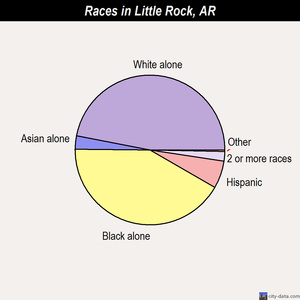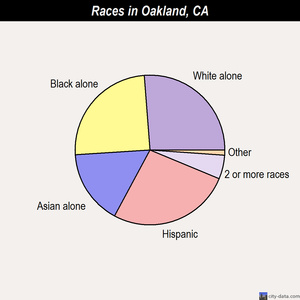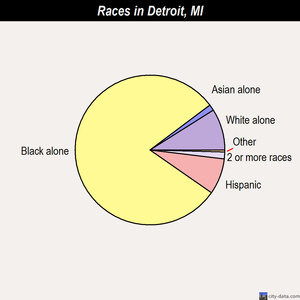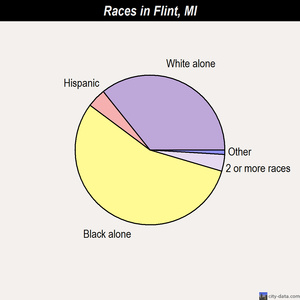









http://www.city-data.com/
Posted on 06/12/2012 7:43:55 AM PDT by SeekAndFind
Today, the FBI announced that violent crime dropped 4% in 2011, compared to a 5.5% drop in 2010. Nationally, the murder rate fell 1.9% from 2010, and robbery, forcible rape and assault fell 4% each. However, among the cities with the highest violent crimes rates, the trend is not entirely positive.
A 24/7 Wall St. review of 2011 FBI crime data shows that violent crime rose in more than half of the cities that have among the highest rates in the country. In seven of the 10 cities, murder rates increased. In eight of the 10, burglary went up.
Strained budgets are forcing police layoffs that many cities cannot afford to make. More than half of local police departments that responded to a national survey reported cuts in the 2011 fiscal year, according to the Police Executive Research Forum, an organization of police executives from across the country. Many are cutting police forces through planned layoffs and attrition.
More than half of the cities with the highest violent crime rates are cutting law enforcement budgets and police forces as well. However, unlike the national picture, the situation is worse for these cities, which depend on tax bases that are shrinking faster than most.
The cities with the highest crime rates tend to have particularly high poverty rates, high unemployment and low median income. Two of the worst-off cities, Flint and Detroit, Mich., both have had well-publicized budget woes. Flint was taken over by an emergency city manager after failing to pay its bills in 2011. Detroit is facing similar budget problems and recently came to a temporary oversight agreement with the state.
While PERF notes that budget cuts appear to be slowing in police departments in the United States, most departments are still cutting. According to the group’s April report on local police budgets, this includes many of the cities on this list.
Oakland, Calif., cut its budget by 7% in the current fiscal year, with an additional 5% cut on the way, according to PERF. In the past two years, the city lost 80 police officers to layoffs and another 108 to attrition. This occurred despite increases in both violent and property crime in 2011.
Similarly, while the Detroit Police Department reported no cuts for fiscal year 2012, the city is planning a 15% cut next year. Detroit also has one of the highest crime rates in the country.
On its website, the FBI cautions against using crime data to compare city violence because rankings tend to be simplistic and ignore factors that influence crime, as well as the different ways crimes are measured and reported. “Data users should not rank locales because there are many factors that cause the nature and type of crime to vary from place to place,” the FBI warns.
Congressional Quarterly, which publishes and analyzes FBI crime statistics each year, referred to crime rate in terms of the “safest” and “most dangerous” cities. However, the publication recently dropped the terms “safe” and “dangerous” due to the concerns of criminologists, Dr. Rachel Boba Santos told 24/7 Wall St.
Despite these objections, Dr. Boba Santos said the data is useful to get a feel for the needs of a particular community and to look at a specific city’s trends on a year-over-year basis. She said the data also is used at the federal level to determine funding resources for different communities, comparing crime rates.
Based on the FBI’s Uniform Crime Report, 24/7 Wall St. identified the 10 U.S. cities with populations of 100,000 or more with the highest rates of violent crime per 1,000 residents. Using the estimated populations and crime incidents from UCR, which measures incidents of eight types of violent and nonviolent crime for 2011, 24/7 Wall St. calculated the incidence of the four types of violent crime per 1,000 persons for that year: murder, forcible rape, robbery and aggravated assault. In addition to crime data, 24/7 Wall St. reviewed median income and poverty rates for these cities from the U.S. Census Bureau for 2010, the most recent available year. We also included average 2011 unemployment rates for these cities, provided by the Bureau of Labor Statistics.
These are the 10 cities with the highest rates of violent crime.
10. Stockton, Calif.
> Violent crimes per 1,000: 14.1
> Population: 295,136
> 2011 murders: 58
> Median income: $45,606
> Unemployment rate: 20.2%
In 2010, Stockton had an unemployment rate of 18.4%, among the worst in the nation for large cities. In 2011, the labor market worsened and unemployment rose to 20.2%, well more than double the national average of 8.9% and the highest of any of the cities on this list. Violent crime rates also have worsened, increasing from 13.8 crimes per 1,000 people in 2010. Though Stockton has long had high crime rates, the 58 murders recorded in Stockton last year were an all-time record for the city. This month, to curb the increasing crime rates in the city, police decided to prioritize violent crime and to no longer respond to property crimes in the city unless certain criminal conditions were met.
9. Baltimore, Md.
> Violent crimes per 1,000: 14.2
> Population: 626,848
> 2011 murders: 196
> Median income: $38,346
> Unemployment rate: 10.5%
Baltimore managed to decrease its violent crime rate slightly from 14.6 per 1,000 in 2010 to 14.2 last year. This coincides with a 12% decrease in murders. However, Baltimore still has the sixth-highest homicide rate of any U.S. city with a population above 100,000. Baltimore’s murder rate has been dropping steadily, but with 341 forcible rape cases in 2011 and the 11th-highest aggravated assault rate in the country, many residents are victims. In 2010, Baltimore made plans to layoff 193 police due to budget cuts.
8. Atlanta, Ga.
> Violent crimes per 1,000: 14.3
> Population: 425,533
> 2011 murders: 88
> Median income: $41,631
> Unemployment rate:12.1%
Compared to most American cities, Atlanta has extremely high incidences of both violent and property crimes. The city’s 8.27 aggravated assaults per 1,000 people is one of the 10 highest rates among the country’s largest cities, as is the city’s 70.84 property crimes per 1,000 people. Atlanta also has one of the nation’s highest rates of motor vehicle theft, with a total of 5,371 incidents in the city last year. Vehicle theft likely will remain an issue throughout 2012 as well; in March almost 100 individuals were arrested as part of a single auto theft operation.
7. Birmingham, Ala.
> Violent crimes per 1,000: 14.8
> Population: 213,258
> 2011 murders: 54
> Median income: $30,212
> Unemployment rate: 10.9%
New on the list this year is Birmingham, which ranks among the top five cities in the U.S. for forcible rape and property crime rates. The city also has among the highest rates of burglary and larceny-theft. Like many other high crime cities, Birmingham has one of the highest poverty rates in the country, at 25.1%. Despite the rampant crime, officials announced last year that they planned to lay off 148 employees of the sheriff’s department in an effort to reduce the budget by $12.3 million.
6. Little Rock, Ark.
> Violent crimes per 1,000: 14.9
> Population: 194,988
> 2011 murders: 37
> Median income: $44,415
> Unemployment rate: 7.2%
Though Little Rock’s 2011 violent crime rate is down from 2010, when there were 15.2 violent crimes for every 1,000 people, in many ways the city’s crime rate has not truly improved. Although in 2010 there were only 25 murders in the city, in 2011 there were 37. Additionally, incidents of forcible rape increased from 149 to 161, while the number of property crime incidents increased by 708, or almost 5%. According to the Little Rock Police Department’s COMPSTAT reports, the total number of violent, property and arson crimes has experienced a net increase since 2001, although with slight declines in more recent years.
5. Memphis, Tenn.
> Violent crimes per 1,000: 15.8
> Population: 652,725
> 2011 murders: 117
> Median income: $37,045
> Unemployment rate: 11.1%
In 2011, Memphis defied the national trend of declining crime rates in major U.S. cities.
The rate of violent crimes per 1,000 people increased, from 15.4 to 15.8. This was the product of increases in murders, which rose from 89 to 117 cases, and aggravated assault incidents, which rose by 100 cases. A rising unemployment rate, which grew 1.2% to 11.1% in 2011, likely has not helped to reduce criminal behavior. With a current budget deficit of $45 million, Mayor Wharton says he may need to consider “taking boots off the street,” by laying off members of the police force in the near future.
4. Oakland, Calif.
> Violent crimes per 1,000: 16.8
> Population: 395,317
> 2011 murders: 104
> Median income: $49,190
> Unemployment rate: 15.6%
Oakland historically has been among the most crime-ridden cities in California, with a violent crime rate this year of 16.8 per 1,000 people. There were 14 more murders in 2011 than in 2010, causing Oakland to maintain the ninth-highest murder rate in the country two years in a row. Oakland is the number one city for both robbery and motor vehicle theft rates in the country. Oakland city councilmember Desley Brooks, who wants to allocate $11 million in revenue to the police force, acknowledges the increased violent crime, saying, “we cannot ignore that we have had an increase in violent crime, and so we cannot continue to do the same thing the same way and expect that it’s going to be a different result.”
3. St. Louis, Mo.
> Violent crimes per 1,000: 18.6
> Population: 320,454
> 2011 murders: 113
> Median income: $32,688
> Unemployment rate: 11.7%
Although the total number of murders in the city has decreased by 31 since 2010, crime in St. Louis did not improve overall last year. Violent crime rates in St. Louis have risen dramatically, from 17.5 to 18.6 cases per 1,000 people. And the city’s murder rate is still the fourth highest in the nation, its robbery rate is the fifth highest in the nation and its aggravated assault rate is third highest in the nation. Despite these troubling facts, the St. Louis Police Department recently faced potentially drastic budget cuts, that may require the elimination of 100 street-patrolling officer positions through attrition.
2. Detroit, Mich.
> Violent crimes per 1,000: 21.4
> Population: 713,239
> 2011 murders: 344
> Median income: $25,787
> Unemployment rate: 19.9%
Long regarded as one of the poorest cities in the U.S., with a 32.3% poverty rate and nearly 20% unemployment in 2010, Detroit has the second-highest violent crime rate in the country. Homicide increased by 11% in 2011, while robbery and aggravated assault are fourth and second highest in the country, respectively. Nonviolent crime is also an issue, with burglary, motor vehicle theft and arson rates in the top 10 rankings in the country. In response to an 18% decrease in the Detroit police budget, which will result in the elimination of 380 positions through attrition and early retirement, the city has begun taking steps to decrease police funding by introducing “Virtual Precincts.” The plan, which closes police stations between 4 p.m. and 8 a.m, requires citizens to report non-emergency crime to a call center, and frees up more patrol officers to respond to 911 emergency calls.
1. Flint, Mich.
> Violent crimes per 1,000: 23.4
> Population: 102,357
> 2011 murders: 52
> Median income: $22,672
> Unemployment rate: 18.9%
According to the FBI examined, no city with more than 100,000 residents had a higher violent crime rate than Flint. In 2011, there were 2,392 incidents of violent crime in Flint, which has a population just above 100,000. That same year, there were just 1,246 violent crimes in all 10 of the safest cities in America — which have 13 times as many residents as Flint among them. Flint has the second-highest murder rate and the highest rates of aggravated assault, burglary and arson in the nation. According to Flint Mayor Dayne Walling: “there are too many guns on the street and it’s easy for individuals with evil motives to take another human being’s life.” Though the violent crime has long been a problem in Flint, in 2010 the city laid off 20 of its 140 police officers, a decision that diminished both the police’s street presence and response times to crime.
I better not. It’s from encyclopedia like that begins with a W, and I don’t think FR doesn’t like links to there.
For the last month, I have been getting “Big Valley” free on Dish Network, not sure if it is a permanent thing or not.
Something which struck me as interesting is when reading the short summary of each episode, nearly every one has been very PC. Sort of surprising considering how old it is.
What I am talking about is something like: innocent Mexican, Black, Native American, etc. tortured by group of old west hooligans in a wagon with a confederate flag on it. Ok, no confederate flag but you know what I mean.
Yawn.
These type of sensationalistic articles are meaningless.
These are just statistics that point to a small inner city area infested by BLACK criminals that have absolutely NO IMPACT on the much larger Metroplex.
Whites have long ago moved far away from these areas and avoid them.
Flint, Mich Median income: $22,672??
That is nuts...I was making more than that in the 1980s...
How in hell can these people survive on 1980s wages?
And throw in sky high winter energy bills??
That’s nuts.
Yeah, I’ve heard that DC is pretty far up there. But then, it’s full of politicians. No surprise.
I would too. Michigan has been "shall issue" CCW for over a decade, and the perps know it.










http://www.city-data.com/
Add in a low Tea Party population, and that spells trouble. None of those cities have any significant Tea Party activity to speak of.
Flint, Mich Median income: $22,672
making 1980s wages, it’s almost understandable people are turning to crime.
Amazing that Chicago, with its average of 15-40 shootings over any given weekend, isn’t on this list.
And Republicans are very scarce too.
You forget that most of these people have all their necessities paid for by the taxpayers - food stamps, free medical care, public education for the kiddies (yes, bad education, but it’s free to them), meals for the kiddies at school, paid or subsidized utilities and housing, and even a “free” cell phone.
Now $22,672 isn’t much, but if all your bills are paid, it does allow one to buy some really cool Nikes.
A quick headline search.
“46 Hurt, 8 Killed in Violent Chicago Weekend | NBC Chicago”
I can’t find any murders for Detroit over the weekend.
I wonder if the drop in violent crime has anything to do with the HUGE increase in gun sales. :-)
That is nuts...I was making more than that in the 1980s...
How in hell can these people survive on 1980s wages?
And throw in sky high winter energy bills??
That’s nuts.
You forget that most of these people have all their necessities paid for by the taxpayers - food stamps, free medical care
The employed, people working get all that? wow...

Yes, check out the income levels where benefits kick in and you will be surprised. They also get the earned income tax credit, which is a tax refund for people who don’t pay taxes.
And poverty statistics are calculated using only income; the value of non-cash benefits people receive from taxpayers is not included. So, the next time you hear that “x” percentage of Americans are living in poverty, add to their supposed income all the freebies they get plus any money they make that they don’t report to the IRS. They may be poor by wealthy American standards, but they are not living in abject poverty.
Oh, and don’t forget what they can get from various private charities and.... free government cheese!
There is a common denominator here, all these cities have large Afro-American populations

Disclaimer: Opinions posted on Free Republic are those of the individual posters and do not necessarily represent the opinion of Free Republic or its management. All materials posted herein are protected by copyright law and the exemption for fair use of copyrighted works.